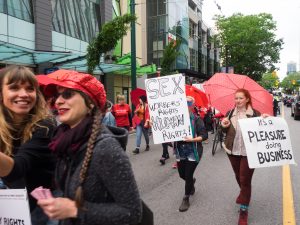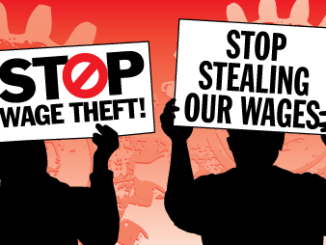
Australia’s gig worker economy has experienced substantial growth in recent times, providing individuals with flexible and convenient employment opportunities.
However, concerns have emerged
- the rights
- protections afforded to gig workers

Despite the advantages of flexibility, gig work often classifies workers as independent contractors, leaving them without crucial benefits like sick leave, workers’ compensation, and superannuation.
Furthermore, the Parliament of Australia says gig work can result in inconsistent earnings and job instability, leading to financial insecurity.
These deficiencies in safeguarding workers make them vulnerable to exploitation, exacerbating inequalities within society. It is imperative to address these challenges and explore policy solutions that ensure fair and sustainable working conditions for gig workers in Australia. Australia’s gig worker economy has experienced substantial growth in recent times, providing individuals with flexible and convenient employment opportunities.
However, concerns have emerged about the rights and protections afforded to gig workers. Despite the advantages of flexibility, gig work often classifies workers as independent contractors, leaving them without crucial benefits like sick leave, workers’ compensation, and superannuation. Furthermore, gig work can result in inconsistent earnings and job instability, leading to financial insecurity.
These deficiencies in safeguarding workers make them vulnerable to exploitation, exacerbating inequalities within society. It is imperative to address these challenges and explore policy solutions that ensure fair and sustainable working conditions for gig workers in Australia.
The rise of the gig economy in Australia has reshaped the employment landscape, but its impact on workers’ rights cannot be ignored. One of the key issues facing gig workers is the lack of benefits typically associated with traditional employment.
Due to their classification as independent contractors, gig workers are often excluded from essential benefits such as sick leave, workers’ compensation, and superannuation. This leaves them without crucial safety nets that protect their well-being and financial stability.
In addition to the absence of benefits, gig workers also face income volatility and job instability. The nature of gig work often means that earnings can be unpredictable, making it difficult for workers to plan and budget effectively. This volatility in income can lead to financial insecurity and heightened vulnerability, as workers are left to navigate the uncertainties of gig work without the stability and predictability of traditional employment.
The combination of limited benefits and income volatility puts gig workers at a significant disadvantage compared to their counterparts in traditional employment. Without access to sick leave, gig workers may be forced to work while unwell, risking their own health and potentially spreading illnesses to others. Furthermore, the lack of workers’ compensation leaves gig workers without support in the event of work-related injuries or accidents. These gaps in protection create an unequal playing field and contribute to the exploitation of gig workers.
“Policies for Empowerment: Safeguarding Gig Workers’ Rights and Well-being”
To address these issues and protect the rights of gig workers, it is essential to consider potential policy solutions. One approach is to reassess the classification of gig workers as independent contractors and explore avenues for recognizing them as employees. This would ensure that gig workers are entitled to the same benefits and protections as traditional employees. Additionally, implementing regulations that guarantee minimum wages and set standards for working conditions can help alleviate income volatility and enhance job stability for gig workers.
In conclusion, the gig worker economy in Australia has raised significant concerns about the rights and protections of workers. The lack of benefits and income volatility experienced by gig workers highlights the need for policy solutions that ensure fair and sustainable working conditions. By fostering discussion and debate about the impact of the gig economy on workers’ rights, we can work towards creating a more equitable and inclusive future for all workers in Australia.
“Insights from Nancy: A Gig Worker’s Struggle for Fairness and Security”
We have presented an insightful audio interview with Nancy, a part-time gig worker, shedding light on the challenges faced by gig workers in Australia. Nancy candidly discusses her experience, including the discrepancy between her base salary and the demanding nature of her work. She highlights the absence of labor protection and security for gig workers in today’s Australian society, emphasizing issues such as unreasonable scheduling and the lack of adequate medical coverage. Nancy’s interview provides valuable firsthand insights into the realities faced by gig workers, highlighting the urgent need for policy reforms to ensure fair treatment and protection for this growing sector of the workforce.
Nancy, a foreign part-time gig worker in Australia, said nowadays gig economy’s compensation structure “is quite challenging. We are often paid a base salary per delivery, which may seem reasonable on the surface. However, the intensity of the work doesn’t always match the compensation. We have to navigate through traffic, handle multiple orders simultaneously, and often work long hours to maximize our earnings. The base salary alone does not adequately reflect the effort and time invested in the job.”
“One of the major challenges is the lack of labor protection and security for gig workers. We often face unreasonable scheduling practices, where our shifts can be changed at the last minute or canceled without proper notice. This makes it difficult to plan our lives or secure a stable income. ” Nancy told the Guardians insiders.
Question: Hello, Nancy. Thank you for joining us today. As a part-time gig worker, could you tell us a bit about your experience in the gig economy and the type of work you’re involved in? Nancy: Thank you for having me. I’ve been working as a part-time gig worker for the past two years. I primarily work in the food delivery sector, using various apps to deliver meals to customers’ doorsteps. Question: That’s interesting. Could you share some insights into the compensation structure for gig workers like yourself? How does it align with the intensity of the work you undertake? Nancy: Well, the compensation structure is quite challenging. We are often paid a base salary per delivery, which may seem reasonable on the surface. However, the intensity of the work doesn’t always match the compensation. We have to navigate through traffic, handle multiple orders simultaneously, and often work long hours to maximize our earnings. The base salary alone does not adequately reflect the effort and time invested in the job. Question: That sounds like a significant mismatch between the workload and the compensation. Moving on to the topic of labor protection and security, what are some of the challenges or concerns you face as a gig worker in today’s Australian society? Nancy: One of the major challenges is the lack of labor protection and security for gig workers. We often face unreasonable scheduling practices, where our shifts can be changed at the last minute or canceled without proper notice. This makes it difficult to plan our lives or secure a stable income. Additionally, gig workers like me do not have the same level of medical coverage as citizens. We don’t have access to sick leave or workers’ compensation, leaving us vulnerable in case of illness or workplace injuries. Question: Those are significant issues. How do you think these challenges impact the well-being and livelihoods of gig workers? Nancy: The impact is substantial. The lack of labor protection and security puts gig workers at a disadvantage. It creates financial insecurity, as we don’t have the safety nets that traditional employees enjoy. We are constantly worried about our income stability and face the risk of being left without any earnings if our shifts are suddenly canceled. Additionally, the absence of proper medical coverage means that any illness or injury could result in financial hardship and limited access to necessary healthcare. Question: Thank you for sharing your experiences, Nancy. In your opinion, what steps can be taken to address these challenges and improve the working conditions for gig workers in Australia? Nancy: To address these challenges, policymakers need to prioritize the rights and well-being of gig workers. We need regulations that ensure reasonable scheduling practices, providing us with more stability and control over our work lives. Additionally, gig workers should have access to benefits such as sick leave and workers’ compensation, similar to traditional employees. Closing the gap in medical coverage is also crucial to provide adequate support for gig workers in times of need. These changes would go a long way in creating a fair and secure working environment for gig workers in Australia. Question: Thank you, Nancy, for sharing your valuable insights and shedding light on the challenges faced by gig workers. Your perspective is invaluable in fostering a better understanding of the realities of the gig economy.Transcript
“To address these challenges, policymakers need to prioritize the rights and well-being of gig workers. We need regulations that ensure reasonable scheduling practices, providing us with more stability and control over our work lives. Additionally, gig workers should have access to benefits such as sick leave and workers’ compensation, similar to traditional employees. Closing the gap in medical coverage is also crucial to provide adequate support for gig workers in times of need. These changes would go a long way in creating a fair and secure working environment for gig workers in Australia.”
Furthermore, interviews with gig economy workers, such as Nancy, have shed light on the challenges they face. Nancy, a part-time gig worker, shared her experiences in an interview conducted by the Fair Work Ombudsman. She highlighted issues such as the discrepancy between her base salary and the intensity of her work, as well as the lack of labor protection and security for gig workers in today’s Australian society, including unreasonable scheduling practices and the absence of comprehensive medical coverage. Her insights further emphasize the urgent need for policy reforms to address these concerns (source: Fair Work Ombudsman interview).
In conclusion, the growth of Australia’s gig worker economy has brought about a fundamental shift in the labour landscape. However, the impact on workers’ rights cannot be overlooked. The lack of benefits and income volatility faced by gig workers raises critical concerns about their well-being and financial stability. It is imperative that policymakers and stakeholders address these challenges and work towards establishing fair and sustainable working conditions for gig workers.
To protect the rights of gig workers, there is a need to reconsider the classification of these workers as independent contractors and explore avenues for granting them employee status. This would ensure that gig workers have access to essential benefits such as sick leave, workers’ compensation, and superannuation, leveling the playing field and reducing vulnerability.
Moreover, implementing regulations that establish minimum wages and standards for working conditions can alleviate income volatility and enhance job stability for gig workers. By doing so, we can promote a more equitable and inclusive gig economy that upholds the rights and well-being of workers.
Encouraging discussion and debate about the impact of the gig economy on workers’ rights is crucial. It is through open dialogue and engagement that we can develop effective policy solutions that prioritize the rights, protections, and dignity of gig workers in Australia.
By acknowledging the shadow side of Australia’s gig economy and taking proactive steps to address the issues at hand, we can strive towards a future where gig workers are treated fairly, enjoy comprehensive benefits, and have stable and secure employment. This, in turn, will contribute to a more just and inclusive society for all.




Be the first to comment